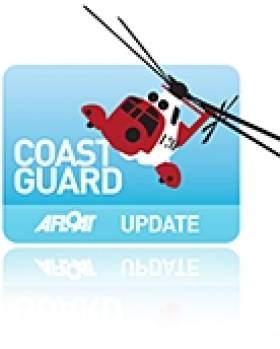Displaying items by tag: Liverpool
Man Drowns Trying to Rescue Dog
A man has been pronounced deceased at Lancaster Hospital after being rescued from the River Lune in Lancaster this afternoon.
At 2.12 pm a member of the public called Liverpool Coastguard to report that they could see a man in the water near the weir of the River Lune in Halton. Further information yielded that the man had jumped into the river after his dog had got into difficulty, but that the man himself could not swim.
Liverpool Coastguard tasked Knott End and Morecambe Coastguard Rescue Teams, the Morecambe RNLI inshore lifeboat and hovercraft, swift water rescue technicians from Lancashire Fire and Rescue Services and a rescue helicopter from RAF Valley.
At 3pm the man was recovered and treated by waiting paramedics. He was transferred to Lancaster Hospital but was later pronounced deceased.
Liverpool Coastguard Watch Manager Paul Parkes said:
"This is a tragic incident where a dog owner has entered the water to try and rescue his pet and sadly, has not survived. We understand that for many people, a dog can be like a member of the family, but we would advise that people dial 999 and call the Coastguard if your pet gets into difficulty on the coast as we can send teams with specialist training and equipment to perform a rescue."
RNLI Hovercraft in Rescue of Girl
At 5.30 pm last night Liverpool Coastguard were alerted to a local 15 year old girl in difficulty by the Leasowe Lighthouse on Moreton Common, Wirral, on Merseyside on the far side of the Irish Sea . She was completely cut off by the tide about 100 metres out on the nearby sandbank.
The Hoylake Coastguard Rescue Team were alerted as was the RNLI New Brighton hovercraft and West Kirby inshore lifeboat.
In the meantime the local Coastguard Sector Manager Steve Travis along with his team deployed their mud sled and recovered the girl to dry land.
By 6.30 pm this evening the girl was safely back at home with her mum.
Paul Kirby, Duty Watch Manager at Liverpool Coastguard said
"Our thanks are due to Steve and his team and the RNLI crews from Hoylake and West Kirby for responding so promptly to our call.
As the evenings are now darker after the clocks went back, swift tides and sandbanks can present a major problem for the unwary in the darkness. Please take care when going anywhere near tidal waters and make sure you know the times of the tides."






























































